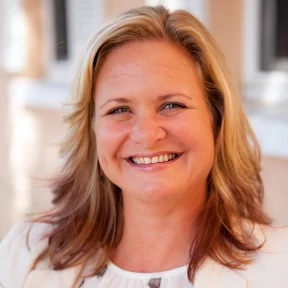College Scholarships for DACA and Undocumented Students
Writer
Editor, Reviewer & Writer
Editor & Writer
Reviewer
Writer
Editor, Reviewer & Writer
Editor & Writer
Reviewer
www.bestcolleges.com is an advertising-supported site. Featured or trusted partner programs and all school search, finder, or match results are for schools that compensate us. This compensation does not influence our school rankings, resource guides, or other editorially-independent information published on this site.
Turn Your Dreams Into Reality
Take our quiz and we'll do the homework for you! Compare your school matches and apply to your top choice today.
According to The Washington Post, more than 11 million undocumented immigrants lived in the U.S. as of 2018. As many as 3.6 million immigrated before they turned 18, which should qualify most of them for Deferred Action for Childhood Arrivals (DACA) status. However, in 2018, only 690,000 individuals received DACA status.
Though still under review, the DREAM Act proposes a pathway to legal status for DACA-eligible immigrants if they pursue higher education. However, since they are ineligible for federal aid, these students must finance their education in other ways.
Can Undocumented Students Apply for Scholarships?
Each year, roughly 100,000 undocumented students graduate from high schools across the country, according to a 2019 Migration Policy Institute study. With federal financial aid out of reach, state and private scholarships for undocumented students become especially valuable. Many states do not offer government-funded scholarships for undocumented students. However, at least 11 states, including Texas and California, offer financial aid.
Additionally, many private scholarships do not require U.S. citizenship for eligibility. This gives undocumented students a chance to apply for financial awards.
Popular Online Programs
Learn about start dates, transferring credits, availability of financial aid, and more by contacting the universities below.
5 Scholarships for Undocumented Students
Golden Door Scholars
Who Is Eligible?: Learners with financial need, high GPAs, and leadership experience can apply. There is a preference for undergraduate degrees in engineering, nursing, and data analytics. Recipients can be in high school or new graduates. Students must maintain a 3.0 GPA.
Application Deadline: Applications reopen in 2024
Scholarship Amount: Varies
National Scholarship
Who Is Eligible?: High school or community college graduates with or without DACA status can apply. Students must have come to the U.S. before the age of 16 and qualify for in-state tuition.
Application Deadline: To be announced
Scholarship Amount: Tuition and fees up to $16,500 for associate degrees and $33,000 for bachelor's degrees. An additional stipend of $4,000-$5,000 is possible for books.
Opportunity Scholarship
Who Is Eligible?: Students with or without DACA status who live in states that do not offer in-state tuition to DREAMers are eligible. Students must have come to the U.S. before the age of 16.
Application Deadline: To be announced
Scholarship Amount: Up to $80,000
QuestBridge
Who Is Eligible?: High school students with high GPAs and financial need, regardless of citizenship status, can apply. Undocumented students must match with colleges that will accept their status.
Application Deadline: September 26, 2023
Scholarship Amount: Four-year scholarship up to $200,000
Davis-Putter Scholarship Fund
Who Is Eligible?: High school students with financial need pursuing careers in social justice can apply regardless of citizenship. Applicants must submit a personal statement, transcripts, and signed references.
Application Deadline: April 1, 2024
Scholarship Amount: Up to $15,000
5 Scholarships for DACA Students
The Dream Award
Who Is Eligible?: DACA students who have completed at least one year of college or trade school with a 3.0 GPA may apply. This scholarship was created to provide forward momentum for students with challenges related to college.
Application Deadline: Applications reopen in February 2024
Scholarship Amount: $500-$15,000 per year. Renewable for three years.
MPOWER Global Citizen Scholarship
Who Is Eligible?: DACA students enrolled in a degree program full time at U.S. or Canadian institutions are eligible.
Application Deadline: To be announced
Scholarship Amount: Grand Prize: $10,000; Runner-Up: $2,000; Honorable Mention: $2,000
The Esperanza Education Fund
Who Is Eligible? This is a need-based scholarship for immigrant students or students with both parents born outside the U.S. Students must be from the District of Columbia metro area, Maryland, or Virginia. It includes mentorship and scholar support.
Application Deadline: To be announced
Scholarship Amount: Up to $20,000
Hispanic Scholarship Fund
Who Is Eligible? Applicants must be of Hispanic heritage with a minimum 3.0 GPA for high school or a 2.5 GPA for college. Students must also submit federal student aid forms.
Application Deadline: To be announced
Scholarship Amount: Up to $5,000
Cooke Undergraduate Transfer Scholarship
Who Is Eligible? This scholarship is a national award that provides students in community college the opportunity to earn their bachelor's degree at a four-year institution. The scholarship includes college planning support, networking, and mentorship opportunities. Applicants must possess a minimum 3.5 GPA and have financial need.
Application Deadline: January 11, 2024
Scholarship Amount: Up to $55,000 per year

Where to Find Scholarships
There are several places to find scholarships for undocumented students, including scholarship databases and school and educational resource pages. Learners should also check with immigration and DACA-related student support organizations. The following list provides more details about these options:
- School Counselor Offices: High school counselors typically maintain lists of available scholarships. Counselors can help students determine eligibility requirements and put together application materials.
- Scholarship Databases: Scholarship databases feature sortable lists that students can use to identify financial aid opportunities. Learners should check with each scholarship source directly to find the most up-to-date information.
- State Educational Websites: Many states maintain educational sites that list scholarship opportunities for residents and learners at in-state schools. Prospective learners should check with states that provide state funding for DACA students. This can help them find the best scholarships for undocumented students.
- College Websites: Most schools maintain databases of local, state, and national scholarships. Searching school websites in states that offer funding for DACA learners can improve students' chances of finding scholarships.
- Relevant Nonprofit Organizations: Some organizations specialize in immigration policy and serving DACA-protected students. These organizations also may help undocumented students complete scholarship applications.
5 Things to Consider During the Scholarship Application Process
The scholarship application process for undocumented students typically looks the same as the application process for other scholarships. However, in some cases, applicants may be required to submit proof of DACA or legal immigration status. Candidates should understand their state's immigration laws before submitting any information about their immigration status.
Common application materials include transcripts, resumes, letters of recommendation, and financial information. Proof of residency and personal letters or essays also may be requested.
Here are five tips to consider when applying for scholarships:
-
1Start the Process Early: Applicants should start looking for potential scholarships sooner rather than later. They can identify opportunities, verify requirements, and start working toward satisfying them without feeling rushed.
-
2Gather and Review Materials: Getting a jump on putting together application materials can help students avoid potential headaches. Gather all of your immigration documents, transcripts, and recommendation letters early in the process.
-
3Track Your Deadlines: Prospective students should keep a calendar of application deadlines to avoid missing important dates. By maintaining a calendar, they can keep track of their most pressing deadlines and requirements. This can help give students enough time to fill out each application.
-
4Know the Requirements: Undocumented students should verify whether they meet the requirements for a scholarship before starting applications. You don't want to waste your time filling out an application only to find out later that you're ineligible for the award.
-
5Check State Immigration Laws: Before applying for scholarships, undocumented students should know their state laws and their rights. If possible, they should speak with a school counselor or a representative from an immigration organization.

Frequently Asked Questions About Scholarships for DACA and Undocumented Students
How can undocumented students pay for college?
Scholarships for undocumented students are a great way to pay for school. Since these students cannot apply for federal aid, they should check for private, state, and school scholarships. Loans and payment plans also may be available. Depending on their situation, DACA students also can consider working for a college, university, or private company that has a tuition remission program for employees.
Can undocumented immigrants get college scholarships?
Yes. There are many scholarships for undocumented students available from various state funding sources and private organizations. As of July 2021, seven states offered state aid to undocumented learners. Many private scholarships do not ask for proof of citizenship.
How can undocumented students apply for scholarships?
Scholarships for undocumented students typically employ the same application process as most other scholarships. Applicants must gather their high school transcripts and complete all application requirements. In many cases, these scholarships simply avoid asking for proof of citizenship, though some may require proof of DACA status.
Can undocumented students complete the FAFSA?
Undocumented students cannot qualify for federal funding. However, a completed FAFSA could still help learners access state funding opportunities. Degree-seekers also should look for private and state scholarships for undocumented students. Some schools may provide institutional funds for DACA and undocumented students. In this case, students may need to complete the College Board's College Scholarship Service Profile or an institutional aid application.
Do DACA recipients qualify for financial aid?
Although DACA students do not qualify for federal student aid, there are funding options available to them. Some states do offer state funding to DACA recipients. Further, grants, scholarships, and loans are options available to them based on need or other specific eligibility requirements. College work-study programs are another option for students and employ students unable to work outside the university community. Finally, various employers offer opportunities by providing work permits to DACA recipients.









